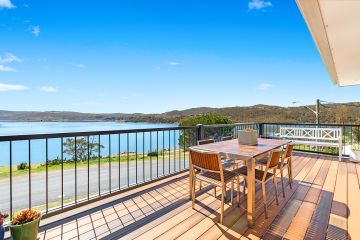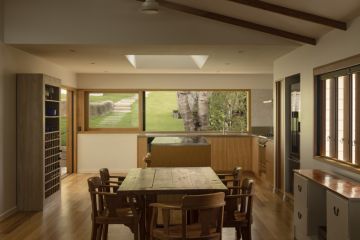Renovating my new home: Where do I start?
Gerry asks:
I’ve just purchased a ‘renovator’s delight’. Where do I start? What shall I do? How do I know how much to spend on it to get the best result? I don’t want to under-do it but I don’t want to over-do it and over-capitalise either. Some tips please!
Jane says:
Many of us walk through prospective homes with visions of what they could be, not simply seeing them for what they are. While it is a helpful skill to be able to see a home’s potential, you should also be cautious about planning extensive renovation work as soon as you purchase your new home. It can be easy to get in over your head, in terms of time and budget.
Start out with a conservative budget, planning to spend no more than 5% of your purchase price on improvements. Once you’ve completed this first part of your renovations, re-evaluate the situation (What still needs renovating? How much value did you add to the property during phase one of your renovation?) and carry out more renovations as and when you can afford to.
To determine where to start, consider two things. What improvements do you most need for living in the home? Which projects will increase the value of your home the most?
If you are planning on living in your new home for the foreseeable future, you should focus on the renovations that will make it best suited to your interior design taste and lifestyle. If your plans are more short-term, you may wish to prioritize projects that boost the value of your home. With either option, you can make decisions that benefit both situations by sticking to a budget and choosing projects with broad appeal.
When you find yourself unresolved on whether or not to renovate, a cost-benefit analysis may help you decide. Some of the advantages of renovations are obvious. You can create the home that you have always wanted, or increase the value of a home you are hoping to sell. Some DIY renovations can increase the value of your property by more than what they cost to complete – and some won’t. If you are considering moving, renovations may develop your house into a home you would like to stay in, saving you thousands in moving expenses.
On the other hand, renovations can run over budget and leave you with more invested in your home than its market value. Living in a home that is under construction can cause stress beyond that caused by the investment that is involved. If you plan on completing renovation projects, be sure that you are realistic about your expectations in terms of timeline, budget, and stress.
Some renovations that add value to a home and are often the top choices of those who intend to live in the home are kitchens, bathrooms, and outdoor space.
It is difficult to go wrong with a kitchen upgrade. This is the biggest selling point of most homes because it is the space families tend to congregate. Avoid overspending on specialty items that can bust your budget.
After kitchens, homeowners look for comfortable, modern bathrooms. Update yours without changing the floor plan to avoid expensive plumbing changes.
A deck or patio adds inviting living space to a home without having to change anything that already exists. Developing an outdoor area can make your home feel larger without an expensive addition.
Check your local building codes for license and permit requirements before beginning any new renovation project.
Jane Eyles-Bennett is the founder ofHotspace Consultants and has more than 20 years of interior design and renovation experience.
We recommend
We thought you might like
States
Capital Cities
Capital Cities - Rentals
Popular Areas
Allhomes
More







